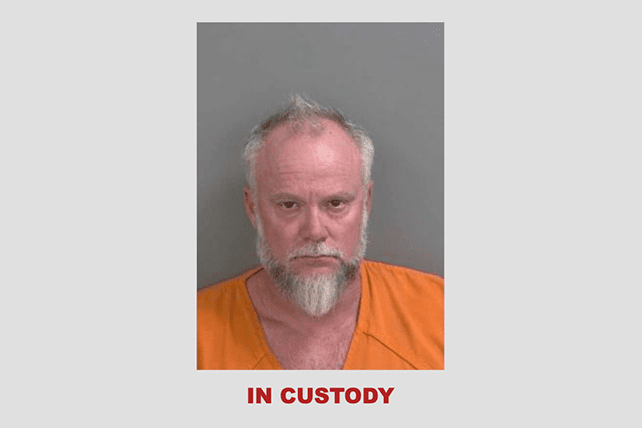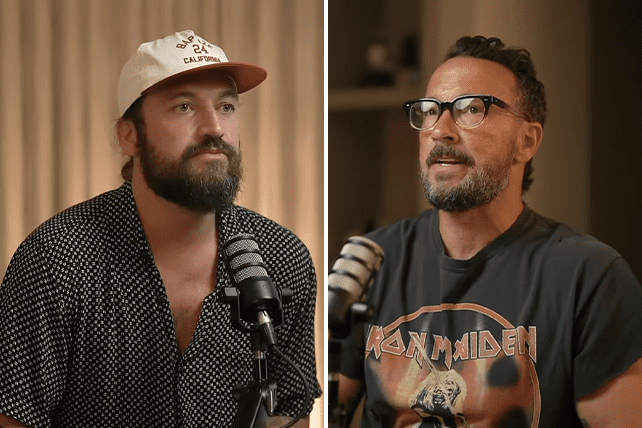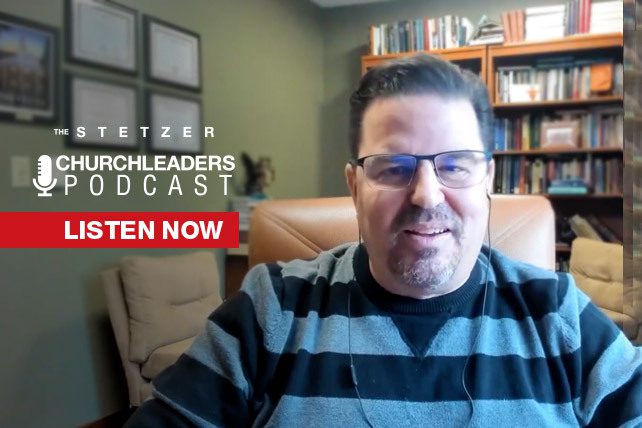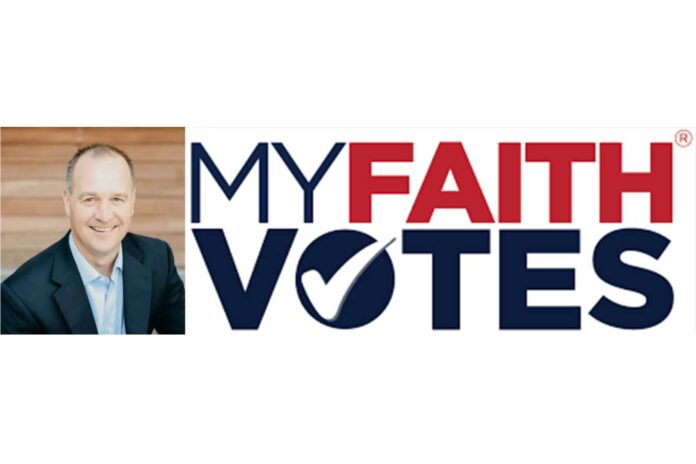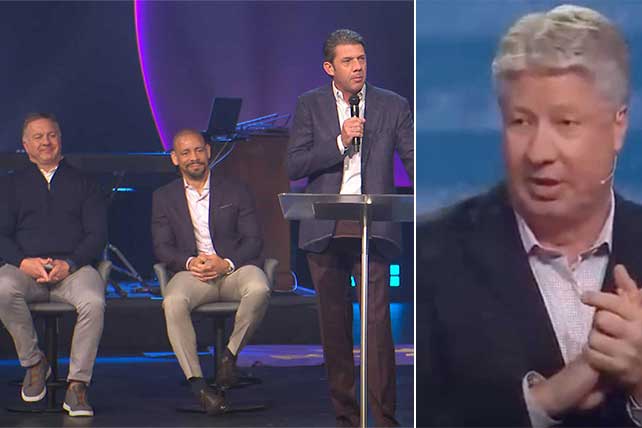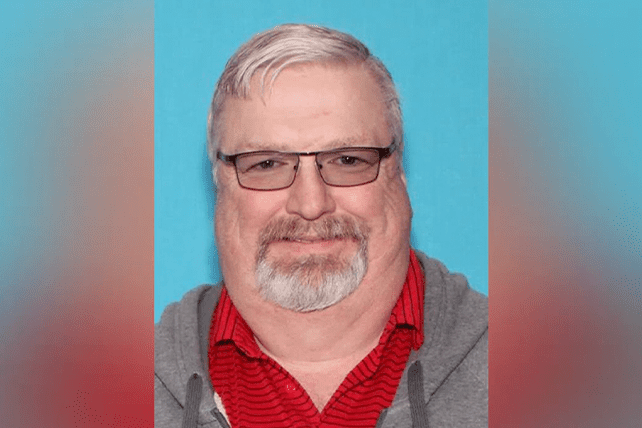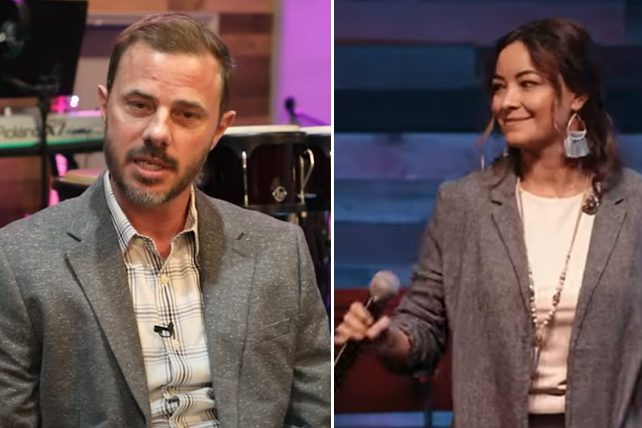Chris Adams on The Stetzer ChurchLeaders Podcast.mp3: this mp3 audio file was automatically transcribed by Sonix with the best speech-to-text algorithms. This transcript may contain errors.
Voice Over:
Welcome to the Stetzer Church Leaders Podcast, conversations with today’s top ministry leaders to help you lead better every day. And now, here are your hosts, Ed Stetzer and Daniel Yang.
Daniel Yang:
Welcome to the Stetzer Church Leaders Podcast, where we’re helping Christian leaders navigate and lead through the cultural issues of today. My name is Daniel Yang, national director of Churches of Welcome at World Relief. And today we’re talking with Doctor Chris Adams. Chris is a professor, chaplain and executive director of the Mental Health and the Church Initiative at Rosemead Graduate School of Psychology at Biola University. He’s also executive director of the Flourishing and Ministry Project, which puts the spotlight on the well-being of clergy and their loved ones. If you enjoy our interviews, be sure to follow and like us on Apple Podcasts. Now let’s go to Ed Stetzer, editor in chief of Outreach Magazine and the dean of the Talbot School of Theology.
Ed Stetzer:
So, Chris, at the time of this recording, we just had like breakfast a couple days ago and and I was super fascinated by some of the questions from this leader from the global South. Yes. And and, you know, honor, shame culture. But just seeing the need for how Christians can step into this mental health space in a place where in this country that’s just not something that people talk about. But Christians know the world is broken. Nobody gets through an unbroken world without some brokenness. And so then we think about where mental health fits in. So this is I mean, you’re leading this this project here, this really significant project called Flourishing in Ministry. It’s flourishing in ministry for people who are interested. So there is a bit of a sense where some people would say, well, just go to if you go to a doctor, you know, to get your your blood pressure checked, you know, just don’t put it. You can go to a doctor who’s an atheist or other religion. Right. So is there like a Christian view of mental health that’s different than a secular view of mental health? And if so, why does that matter?
Chris Adams:
Yeah, I certainly would hope so. In fact, the American Psychiatric Association just recently came out with a study that something it was over 70% of of people in North America go to a faith leader first for mental health kinds of concerns. And so for for church people. We know that they trust their pastor and they’re going to go to them first. And and that’s a wonderful thing because pastors have the credibility and the trust. And so these are certainly issues that are coming up all the time in congregations and churches in the global South. They don’t have the the resources and mental health delivery system like we do here in the US. But our, our hope in a place like Rosemead School of Psychology is that we’re integrating psychology in a theologically directed way. In other words, we we start with a theological worldview and assumptions and are critically thinking about psychological theories. We don’t adopt any of them wholesale, of course, and really think about what’s helpful to help us understand what it means to be human, what’s consistent with biblical truth and theological assumptions, and what isn’t. And how do we help people live into holiness and wholeness in a way that is fundamentally a part of their Christian discipleship?
Ed Stetzer:
Yeah. And it’s probably weird to people, but I got to take like 10s to explain. At a university, there are different schools. I lead the Talbot School of Theology at Biola University. Chris is in the Rosemead School of Psychology. It’s very well respected. I’m just I saw I just think my daughter’s a psychology major in their program going to Biola, and I read a thing recently. It’s one of the top psychology programs in the country. But it’s a little weird. Like how why is the School of Psychology doing a flourishing in ministry coaching? Well, one of the things that’s really great about Biola is everybody is ultimately deeply integrated in a biblical worldview and a very driven by serving the church. So they have this flourishing and ministry opportunities, coaching, all that sort of stuff. I’ll talk more about that a little bit later on. But just to give a little context, it might be a little strange to people. So I’m going to be asking all these pastor questions to you because our audience is pastors and churches, church leaders you’ve already mentioned. I’ve often said that in a mental health crisis, Pastors and police officers are almost always one of the two. First responders, depending how severe the crisis is and often have very little training in what to do. So. So when we think of we’re going to talk some about their own mental health in this. Yes. And we’ll kind of walk through that as well. But but what is it. What’s the challenge of walking through when the pastor is that caregiver? What’s some early advice when that pastor or church leader, he or she gets somebody calls up and says, this is I’m in a crisis. What do I do? What’s your advice?
Chris Adams:
Yeah, absolutely. Well, and you’re absolutely right. I mean, pastors are first responders. They don’t often get included in that group of folks. And and I always like to say to, to pastors, I don’t think they get nearly enough credit for the preventative mental health work that they’re doing just by doing what they do and having a congregation in which people participate, they’re doing an enormous amount of preventative mental health work that keeps people from getting into crisis in the first place. But but in those crises, I think the important thing is to to remember your scope of practice, if you will. So to not try to enter into treatment of particularly severe, complex mental health issues when that’s not your training. On the other hand, to not underestimate the importance of your role as a shepherd, as a caregiver, even when people do need specialized mental health treatment or even psychiatric hospitalization. The pastors still have a very important role that nobody else can fill in the lives of people is really. Nobody else is relating to the whole person the way that pastors do. We need other helping professions. They’re certainly important and helpful, but nobody else is engaged in all of life, from birth to death and at birthday parties and funerals and worship services and picnics and Little League games and everything else. The way pastors are no other helping professional has access to people’s lives in that way. So to to kind of find that balance between not trying to do more than, than you’re qualified to do, but at the same time not, um, not abdicating the importance of the role that you have in people’s lives, even when we are referring them and collaborating with other specialists of various kinds.
Ed Stetzer:
Yeah. I want to I want to press in a little bit on that, because I want to say that as someone who deeply values and has valued the work of Christian, uh, you know, therapy opportunities, counselors, counseling and more. Um, sometimes you give us a little bit of a mixed message. And, and so I recently had Jim and Heather sells on the podcast. We’ll link to it. Yeah. Talking about Beyond the Clinical Hour. And part of their thing is, I think, a, a pushback to some of the idea that what we kind of maybe heard, I don’t know, I’ve been a pastor since 1988, and when I first heard is pastors, you need to refer more. And so we we referred more. And I will tell you that in some ways, as a pastor, I mean, walking with people through difficult seasons is a hard. Time consuming thing. And so we’ve got to get out of that business and we’ve got to partner with the professionals. So we did that. And then there’s sort of the message now, like beyond the clinical, our part of our conversation here is no, we actually need to be more than just a referrers. You know, the Bible tells us to carry one another’s burdens. And so I think most pastors want their church to be a friendly church.
Ed Stetzer:
Okay. That’s great. Maybe they want their church to be a caring church. That’s good too. Absolutely. But to be a caring church where we bear one another’s burdens is a different level. So it’s so I don’t want to. Part of the I get concerned about the pendulum swing that I’ve seen just in my 30 years in ministry. That’s that’s there. So where is that right spot? Where okay, so you said complex issues, right. So but how do I know when something’s a spiritual struggle versus a mental illness. I, you my my what did you call it? My my scope of my practice. Scope of practice? I’m not an expert to spot that. I mean, I can spot certain things, we can. We can all sometimes see what you know, what we might have called bipolar disorder. Looks like we’ve all seen different expressions of that, but sometimes we just don’t know. And so we should get more training. And that’s why we have places like Talbot School of Theology and Rosemead and lots of our other wonderful partners out there. So so you hear my you hear my concern, maybe even my frustration. So how do we do that?
Chris Adams:
Well, yeah. And and I share your concern too. I’m ordained and have been in pastoral roles and university chaplaincy roles as well. And, uh, share that concern, in part because not all therapists are created equal. And so we need to use discernment in terms of who we refer to. And, and, you know, having some kind of relationship, which is challenging given all the demands on the time of pastors. But knowing the folks you’re referring to and knowing their own theological competencies and so forth can be really helpful in being able to trust that referral. But it really is a both and in my experience, that we don’t want to refer. And then the pastor’s out. Um, because again, when when the church is at its best, it’s inherently therapeutic. It’s more than that. But when a church is at its best and someone’s involved in a church that does things in people’s lives that I’m not sure even the best of therapists can can do on their own with just therapy. We really need the life and community. And that’s certainly been underscored during and after the pandemic that what what people need is connection and belonging. And the church provides that and, and provides an opportunity for people to learn the practices that that research is quote unquote, discovering help human beings to flourish. And many, if not most of those are actually ancient Christian spiritual practices. So they’re not really new to the Christian faith. They’ve been a part of the church for for centuries.
Ed Stetzer:
Yeah. And I think the, you know, the kind of balance, you know, pastor says helper, it’s a helping profession and it’s a broken world. And, you know, again, a church with without broken people is a broken church. I mean, that’s not everyone has to be shiny and happy, but a church without broken people is a broken church. We need that. Yes. But I think in some ways it gave pastors. I mean, I don’t I don’t want to say this in the sense that there was some bad motive, but it did give them an opportunity to just say, hey, just let’s let me not worry about this. You take care of this and then. But that’s we need a community of care that includes pastors, key leaders in the church and mental health professionals where appropriate. And I would say best done with Christian mental health professionals as well, who share a common worldview. So I guess then a big part of what you’re doing in this, in this initiative, it’s again, it’s flourishing in ministry. Now you hear that? Like, right. It’s like so it’s not directly aimed at those individual church members though. It has a relationship. We’ll get to that. But is for ministry leaders, for pastors and church leaders. So if you don’t mind, tell us a little bit. I mean, again, because of the part of it is the helping profession. You feel that as well. So what about the wellbeing of church leaders? Um, how did that get your concern? And then tell us about the research. Just just walk with us through where flourishing ministry comes from.
Chris Adams:
And and one concept, by the way, I’ll just mention, um, that I encourage pastors to think about is helping to create a web of care around a given person. Oh, I like that web of care that includes them. Um, and they’re in a unique position to sort of help facilitate that web and may include physician therapists, psychiatrists, social worker, but also includes Sunday school teacher, choir director. Um, you know, women’s ministry director. And and that whole web working together over time is what is enormously redemptive and healing for people. And so we’re also thinking about a web of care for ministry leaders themselves. Yeah. Um, I’m a third generation pastor’s kid, so my grandfather was a pastor of mostly in his career, what I like to call small clergy killing New England congregations. Ouch. Yes. And lots of stories from from those areas. He’s one of my heroes. He died young of a heart attack. And I’m convinced that a lot of that had to do with the amount of stress. He did everything. He mowed the church lawn. He made the church bulletins on a mimeograph machine back in the day, you know, preached to the pastoral care. Did it all. And nobody was really talking about, you know, the stress of ministry back in those days. And then my my dad, I grew up in Nashville, Tennessee, where where God lives, as you know, it is in Nashville. Um, and, uh, my dad was in music ministry his whole career. So because of that, I just did hundreds and hundreds of pastor’s homes all my life across a lot of different denominations, and saw a lot of amazing examples of different philosophies of ministry and ecclesiology and stuff, but also saw a lot of common in pain and.
Chris Adams:
And then got into my own seminary years and theology degrees and started working in a local church and had my own experiences of ministry, stress, and the path the Lord had for me was to become a psychologist specializing in working with ministry leaders and their families. Given the the unique joys there, there is no greater joy, in my opinion, than than being in ministry and being a pastor. And they’re also very unique stresses that that are often hidden even from ministry leaders themselves. And then the impact of those stresses is, is off the radar until it hits a threshold of severity. And then it can really catch people unaware in a very painful way. And so we’ve been trying to think about how do we study what’s right with healthy leaders, what are the factors and conditions and practices that are promoting that well-being even in the midst of all of the complexity and stress and strain that are just inherent in ministry leadership. And yet, how do we live into the abundant life Jesus talks about? And how do we do that with a sense of joy doesn’t mean we’re we’re minimizing or denying the enormous challenges. It’s just a really, really tough job. Always has been. Maybe more so, at least in North America right now than it has been in in recent decades, in my experience. And and yet there are, as you know, so many incredibly faithful people out there doing amazing, fruitful work day in and day out. And we want to just help them sustain that. How do we do that for as long as possible, as effectively as possible?
Ed Stetzer:
Yeah. And so what did some of the research show you?
Chris Adams:
Yeah. So there the the challenge is, um, sustaining daily well-being is probably one of the biggest challenges. So our flourishing ministry model Remodel has five dimensions to it daily well-being, resilience, thriving, authenticity and then the health of the social ecosystem that pastor is living in. And the first thing to get low for ministry leaders is daily well-being. So just that sense of doing pretty good physically in your physical health, your emotional health, relationally, spiritually, vocationally, not necessarily the best day you’ve ever had, but just pretty good. And if that gets too low for too long, it can start to pull down all the other dimensions of flourishing as well. And so we often start with really basic things getting enough sleep, getting enough exercise, appropriate nutrition, etc., which aren’t, in a sense, aren’t rocket science. I mean, most of us know what we should be doing more of to take better care of ourselves, but the the things that get in the way, the obstacles to doing those things for for pastors can be very complicated. And so we often spend a lot of time talking about the the obstacles, what’s getting in the way and how do we help people set goals.
Chris Adams:
And the good news and what we’re finding is that small steps done frequently and consistently really do accumulate positively over time and make a difference. So, for example, just five minutes of silence in the middle of the day where you don’t even have to pray, you can you can meditate, think about an attribute of God or a passage of Scripture or a worship song that you love, and just do that for five minutes a day. It’s not going to erase the bad day. Of course, it’s really stressful. When ten things popped up at church unexpectedly that weren’t on the calendar, which is the typical Monday for pastors, but it will make a difference over time to do that practice every day, day in and day out, week in and week out with respect to physical health, emotional health, etc. so small practices done frequently and consistently where we can take a step back from the flow of busyness and just pause are really, really important practices. We’re finding contemplative kinds of practices, especially from Christian history, seem to be especially important for ministry leaders.
Ed Stetzer:
What are some of the distinctions if there are in the research on church size? Um, you know, we’ve we’ve you know, part of the reality is, is a failure in a church of 100 doesn’t make the national news, but. Right. I hear one more story that begins with Dallas area pastor. I’m kind of tired of the phrase Dallas area pastor.
Chris Adams:
No kidding.
Ed Stetzer:
Um, but but, you know, I’ve seen some of these explosions up close. I’ve seen people just pastors lose their way. And maybe because of the world I live. Sometimes that’s in the mega-church space. Um, and do you see distinction by size or the mental health issues similar in each place?
Chris Adams:
The sets are.
Ed Stetzer:
Church Leaders Podcast is part of the Church Leaders Podcast Network, which is dedicated to resourcing church leaders in order to help them face the complexities of ministry. Today, the Church Leaders Podcast Network supports pastors and ministry leaders by challenging assumptions, by providing insights and offering practical advice and solutions and steps that will help church leaders navigate the variety of cultures and contexts that we’re serving in. Learn more at Church leaders.com/podcast network.
Chris Adams:
Yeah. What so far? Um, from a research perspective. Um, I think the distinction I would see would be in the nature of the stresses, some of the stresses, some of them are the same across the board. Yeah, sure. Um, and and yet that one megachurch pastor I know, uh, likes to tell pastors that sort of dream of being a megachurch pastor. So, you know, be careful what you wish for bigger, bigger church, bigger problems in some ways. And and yet what what the research seems to tell us is that regardless of the size of church, it only takes 4 to 6 people if they’re networked the right way and are are toxic enough in their behavior and subversive of a pastor to really subvert and and destroy a church regardless of the size.
Ed Stetzer:
Oh, yeah. No, it’s it’s true. And that’s and that’s kind of it’s interesting your research says that because that’s been an old preacher saying for decades is that, you know, it’s about it’s about 5 to 7 people that will take a pastor down or take a pastor out. Now, sometimes that might be something that needs to be done, but, you know, but but simultaneously, it does seem to be. And so I guess part of it’s, it’s we have an article coming out in I’m the editor of a magazine related to this podcast called Outreach Magazine. And Margaret Diddams, uh, you know, well-known well, former provost of Wheaton, but psychologist by background. She’s writing an article on betrayal trauma and how pastors have experienced that. So, Yes. Consistently so. And again I want to say if someone’s listening right now and they’re like well what about the bad pastors? Well okay, there are bad pastors, but what about the good pastors and how do they stay healthy as well? So talk to us a little bit about some of the unique stresses that cause some of these struggles that pastors have.
Chris Adams:
Yeah. And you’re absolutely right. I mean, the flip side of that is what we’re finding is that pastors who who don’t do the the hard work of getting to know themselves as a person, cultivating self-awareness, emotional intelligence, kinds of competencies. If they don’t do that work, they tend not to flourish long term in ministry, regardless of church size. So there’s work that pastors have to do, of course, to be healthy themselves. Um, I think the there’s some unique stresses, some stresses that pastors have in common with all helping professions, but some of the things that have sort of popped up as unique are kind of simultaneous role complexity. There is no more complex job description than being a pastor. According to our research and the number of hats pastors have to wear, the breadth of competencies and switching rapidly between those in any given day. It just is unlike any other job and simultaneous role immersion, which is what psychologists refer to. When there’s a job where you you’re in it 24 over seven. It’s not just a job, it’s a it’s a calling. It’s an identity. Um, you know, you go to the grocery store at 11:00 at night if you’re a pastor and you run into somebody from church, you’re hearing a confession or doing pastoral care.
Ed Stetzer:
You got to go into pastor mode. You can even there’s some people call it pastor Face. You gotta, you gotta, you gotta be ready to go. Totally.
Chris Adams:
And that’s a 24 over seven deal. And then there’s also role ambiguity in the sense that, you know, what does a pastor do? People think they just work on Sundays, and you’ve probably got as many opinions of what pastors should be doing as there are people in the pews. Use. And so navigating all of that, um, can be very challenging. And the result of the way people relate to a pastor is paradoxically very isolating. And this is the surprise to people that have never been in ministry that, you know, how could you possibly be lonely, pastor, you’re around people all the time. Well, it’s sort of the water. Water everywhere. Not a drop to drink kind of phenomenon, because people are relating more to your role than to who you actually are as editor or Chris, as a person. And unless we maintain places where we’re truly known and have true two way intimacy and accountability and all those kinds of things, certainly in a healthy marriage and family if you’re married. But I also recommend pastors have at least one close personal friendship outside of their congregation. Um, why? Because that person doesn’t need you to be their pastor. They know you’re a pastor. They support that. But you can just be a friend. You can just be a guy or a gal or, you know, just laugh, vent if you need to vent, cry. If you need to cry, be totally spontaneously who you are and not have to be measured and guarded and pastoral and everything that you do. Um, and it just helps to have a place to be able to step out of that and, and be genuine and be fully, fully known somewhere.
Ed Stetzer:
And could that friend, you mentioned that they know your pastor, but maybe, maybe I’m reading into it that they’re not a pastor. Is that good to have pastor friends like that? A mutual pastors who can help you relate?
Chris Adams:
Yeah, we’re finding both that it’s the other piece that’s really important for clergy is to have a community of practice. Other people that do what you do, that you can be real with and not not be competitive with. Um, and that’s the challenge that pastors often have. But people that understand what it’s like in your world and you can encourage one another, share ideas, Is, etc. and so it can be another pastor who’s a close friend, but it can also be really helpful. In my experience, when somebody is in a totally different line of work, um, just to hear what that’s like and it just kind of get you outside of of that. Yeah. You know, a little.
Ed Stetzer:
Bit I found being a of course, I’ve been a church planter, a pastor of a small church, interim pastor of some churches. Um, and now, I guess, something of a motivational speaker who lives in the van down by the river, but, um, but but I have found a commonality is that people who are not invested in you really will use you as a commodity. Yes. Um, and and they’re kind of offended when you advocate for yourself in that. So I’ll give you just an example. I get a call pretty frequently. Hey, would you come speak at our, you know, three day conference and we’d like you to speak each morning and stay with us for three days. And I say to them, well, you know, I could do one day and speak three times. And to them it’s like, well, you’re too big of a deal. You don’t want to come spend time with us. And to me, it’s I’m married and I’ve got this. Well, in this case, I got a job. And and even in church life, you know, when church was, you know, when started having activities, church I planted grew to 125 or so. I wrote my d.min.
Ed Stetzer:
dissertation on this back in the long time ago before the PhD, and it was. But we need the pastorate this and we need to pastor this. I was the I was the center of the wheel. The spokes all came to me as the hub. And when you tried to undo that, well, listen, I’m probably not going to come to the to the women’s event or the men’s event, but let’s have some. It’s like, well, what? Do you not love us? And so I really had to I’m very comfortable in this space now, but I was not comfortable in this space 20 years ago, and it led to some real distress in my life. Absolutely. Um, leading to the point where I was like, am I? What am I doing? So there is that sense. So how do you advise pastors to advocate? And again, we’re doing this. The podcast is not just pastors, it’s pastors and church leaders. And the flourishing of ministry initiative is is pastors and church leaders. Yes. How can he or she advocate for better balance when people are offended by the very thing that the pastor or the church leader needs?
Chris Adams:
Well, and this also ties back to something you mentioned earlier I wanted to highlight, which is that there is a form or forms of post-traumatic stress that I think pastors experience that’s more relational trauma. Um, you know, when when you really invest in folks and you’re there for them in crisis and you’re there to marry them and funerals and in the hospital and whatever, only to find out that they’re really were relating to you as a commodity. Um, and that’s very painful for understandably. Um, and so one of the things that we talk with folks about in the flourishing ministry training is, is developing assertiveness Skills. Most of us tend to be more passive who go into ministry, leadership or just nice people. We we do this because we love people, and possibly to the point of even being a little bit conflict avoidant. And so we’re also not talking about being overly aggressive, like I coined the term, I think I coined the term sociopath instead of sociopath. It’s a little term I.
Ed Stetzer:
Did not know you coined that term.
Chris Adams:
So there’s a, you know, an extreme version of a bully type of aggressive pastor. We’re not talking about that. But there’s a middle place of that, of healthy boundaries of of being able to say what I need and think and want and feel in a way that’s not overbearing or manipulative or coercive, but is also clear. And there are times people are going to be disappointed. I don’t know if you’re familiar with the work of Ron Heifetz psychiatrist, but he defines leadership as disappointing people at a rate they can tolerate And sometimes.
Ed Stetzer:
One of my one of my talks when I teach leadership at Talbot.
Chris Adams:
Oh, fantastic. And I for pastors, I think that’s always the decision you’re weighing in your mind is it’s not just these aren’t just time management decisions. These all have relational consequences. And I can’t be everywhere and meet everybody’s expectations. So what are sort of reasonable and fair expectations. And how do we have conversation about that as church leadership. And often when when pastors can kind of come to terms with having fair and reasonable expectations of themselves, it makes it much easier to navigate all the other expectations that people have for you. It’s still challenging because it can lead to conflict and and so forth as you’re well aware. But but.
Ed Stetzer:
If you’re going to survive, you’re going to have to have those conversations, and you’re going to have to have.
Chris Adams:
To develop assertiveness and conflict management.
Ed Stetzer:
Right. You can do it graciously, lovingly. When I explained this, folks wanted me to come for three days and I said, it’s not that I wouldn’t want to say I’ll be there all day. You know, I can have lunch with everybody. Breakfast, everybody. Dinner with everybody. But I can’t take three days away. Yeah. And they understood. But I had to explain it because there’s kind of we’re speakers. There’s kind of a perception of that. And. But it’s also with pastors like, oh, you’re too important to come do this. Well, no, there’s a space and place for pacing those things. And good elders and leadership teams are so essential to that.
Chris Adams:
Yeah. I’ve been hurt that you didn’t hang out with me after breakfast, so, you know, I’m working through that.
Ed Stetzer:
I did leave. I actually showed up late, which was not my intent. I had a traffic problem. You know, one of the things that living in LA or driving in LA County, you always traffic. I got it. Anyway, it is what it is. It was a good meeting and you did a great job. Um, so. Okay, so what is like one of the things I tell pastors one way to measure kind of where you are on a healthy relationship with your congregation is when you get a text saying, pastor, can we get together to talk? Um, how strong is your reaction and what direction does that reaction go? Now, it used to be back when the phone call, you know, it’s like and I got to tell you this is from experience. So 20 years ago, you know, we were pastoring I was planting a church. Church was growing and, and but every week I needed I had this psychological need to have more people every week, like, literally every week. So I’d call people on Saturday, make sure you bring your family this weekend. But then when I got that call back, I was I was too vested in in this. So help the pastors and church leaders. What’s a like you get that text. There’s there’s a normal sense of, uh oh, I don’t think that’s a bad thing to say. Uh oh. Because otherwise they’d say, I want to get together and talk about our youth ministry or something of that sort. But then at the same time, it’s dread, you know, there’s there’s something more. So how how what are some ways to sort of measure whether you’re maybe, maybe off where you need to be.
Chris Adams:
Such a great question. Um, and, uh, what that leads me to think about is, is one of the tasks I think in, in ministry is managing our adrenaline. So let me unpack that for you. Me. I like that that it’s a very adrenaline demanding profession. And this is what’s often off the radar for ministry leaders, that we’re constantly overtaxing our own stress hormones just to meet the demands of the job. And if we’re not careful, we can start sort of reacting to everything indiscriminately, as if everything’s a crisis, because other people may think it’s a crisis and it’s easy to take on other people’s anxiety. Anxiety is sort of contagious in that way. And so to think through, for for ourselves, this is the way I define an actual crisis versus what someone might feel like is a crisis. I heard a really interesting sermon not too long ago from a denominational leader who was unpacking the call of Moses story, the Burning Bush story, and I hadn’t heard this before, and I went and looked it up afterward to make sure he wasn’t just making this up or something. Um, and apparently the kind of bush that Moses saw burning in the desert Still to this day in that part of the world, if it gets hot enough in the desert, will spontaneously combust. And so maybe it wasn’t unusual that Moses saw that kind of bush on fire. What was unusual is that it wasn’t being consumed and it was speaking to him.
Chris Adams:
And so the task of ministry then is to learn which fires to pay attention to. And I really like that because we can learn to respond rather than react. Part of what I would say about getting the text is, well, let’s think about who should have your cell phone number and who shouldn’t. In the first place. And do you want everybody texting you? That’s something to think through intentionally. What are the mechanisms and ways people get access to you in the pastoral staff, and have some way of having a process for that? Um, because the Unhealthier people are in their own emotional development, the more they’re going to push those boundaries, They’re going to call you at two in the morning. They’re going to come by the parsonage unannounced, come by the office and announced. And sometimes we need to help people learn, um, how to have healthier boundaries. And people were going to protest that at times. In fact, I was talking recently with a friend of mine who went through a really severe burnout experience in ministry, and he got into therapy and got a leadership coach and recovered and has been back in ministry for a long time. But he said what I wasn’t prepared for after I got healthier was the the people that really liked the former unhealthy me with no boundaries.
Ed Stetzer:
Oh how.
Chris Adams:
Fascinating. And I and I came back healthier and people were upset about that. And some people even left the church because they liked me overfunctioning not having the healthy boundaries. And, um, of course we want to be responsive. I mean, that’s that’s a pastor’s heart, you know, and you’re there for people. Um, when, when the tragedy does happen at two in the morning. I mean, sometimes that’s what we do. And yet there has to be some pace and some limits and boundaries around that if we’re going to do this sustainably.
Ed Stetzer:
The ministry doctor Chris Adams has is called a flourishing in ministry. It’s a flourishing ministry. Org and you can find more information there. Last word from you. You know, a 30 something minute podcast is not going to change everybody’s life. Well, with Chris Adams on, perhaps it will. But what what would you kind of give? One parting word of advice to the pastors and church leaders who listen related to their own flourishing in ministry? Oh, great.
Chris Adams:
I think one of the things I would I would give is something that we’ve learned that I’ve had many, many pastors say to me was a game changer for them when they implemented this practice, which is you need to play. What we’re finding is for at least 30 minutes a week is a bare minimum. Do something that meets these three criteria that you love doing just for the sheer enjoyment of the activity. You can literally just lose yourself in it like a child at play. And it evokes all kinds of fun and positive emotions, and that you have some skill in doing. It can be developing skill. And that takes your full concentration to do it. Now that’s the key. Why is that important? Because when we do something like that, we’re not also mentally working. When we’re taking our Sabbath day or our day off or resting. Um, you know, for pastors that preach regularly, I always ask them, when’s the sermon done? Being prepared? And the answer is, when I’m done preaching it, you know, it’s always germinating back there somewhere. And and unless we’re intentional, we never take a mental break from ministry. And so when we’re mentally working even, it’s stirring up all those stress hormones and stress physiology. And, and during a time when we’re supposed to be doing something where God can renew us, replenish us, recreate us, um, and so, So it’s important to play. And what we know is that you come back to the same work with exponentially higher productivity, efficiency, creativity than if you hadn’t taken a break and gone and done something renewing. So that would be the biggest thing I would want to leave your listeners with.
Daniel Yang:
We’ve been talking to Doctor Chris Adams. Be sure to check out the Flourishing and Ministry project at Flourishing in ministry.org. Thanks again for listening to this Church Leaders podcast. You can find more interviews as well as other great content from ministry leaders at Church leaders.com/podcast. And again, if you found our conversation today helpful, we’d love for you to take a few moments to leave us a review, give us a like and a follow, and that will help other ministry leaders find us and benefit from our content. Thanks for listening. We’ll see you in the next episode.
Voice Over:
You’ve been listening to the Stetzer Church Leaders podcast for more great interviews as well as articles, videos, and free resources, visit our website at Church leaders.com. Thanks for listening.
Sonix has many features that you’d love including transcribe multiple languages, enterprise-grade admin tools, generate automated summaries powered by AI, automated translation, and easily transcribe your Zoom meetings. Try Sonix for free today.





